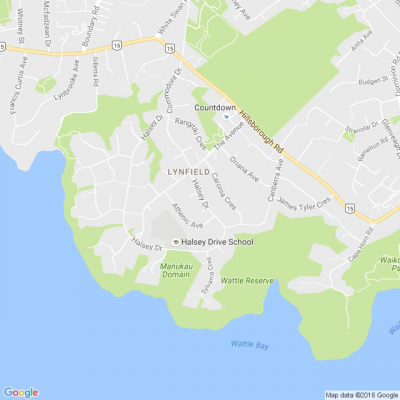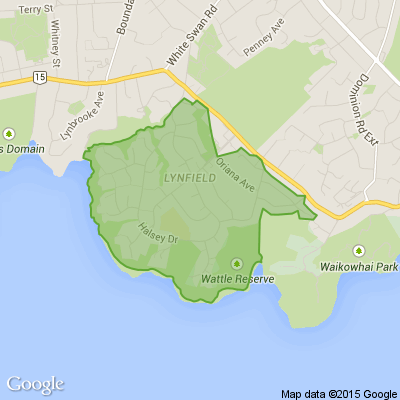After a year in Australia: 'Honestly, this place is cheaper than NZ'
When I left NZ, it seemed I was part of an exodus. Little did I know that exodus was only going to intensify.
It seems every other week, another friend or colleague announces their move across the Tasman. And, look, the lure of Australia is undeniable – better pay, improved working conditions, and yes, the sunshine.
Watch Aziz's price comparison in full on TVNZ+
A year on, we now know more than 85,000 New Zealanders have flocked across the ditch. It seems while the ibis might be notorious for scavenging, the kiwi is now the one crossing the ditch in search of better pickings.
Here’s why.
=========
Let’s kick things off easy with housing. According to CoreLogic’s latest figures, if you’re looking to buy a home, Australia seems to have the edge (unless you’re planning to buy in Sydney, then good luck).
The median house price in Australia is, in NZ dollars, just over $880,000, compared to New Zealand’s $931,000, Even in the pricey cities of Sydney and Auckland, the numbers are comparable, with homes costing nearly $1.3 million.
If you’re renting like me, you’re going to be paying more though, especially if you’re living in Sydney. The average national Aussie rent is around $695 per week, while TradeMe says it’s slightly cheaper in New Zealand at $610.
But if you’re in Auckland, prepare to shell out about $660 weekly compared to Sydney’s eye-watering $820.
Utilities and Groceries
==================
When it comes to utilities, shock-horror, Australians again come out on top. Canstar Blue shows the average monthly electricity bill is $122, far cheaper than the $196 Kiwis pay. And in Australia, we pay our power quarterly.
Personally, because I live on my own here, my bill roughly hits $200-$250 every three months.
When it comes to groceries, prices are on the rise in Australia, with the latest figures showing they are actually the most expensive we’ve seen in a while. The kicker is we are spoiled for choice when it comes to our supermarkets.
The Australian Bureau of Statistics says the average Australian household spends about $208 a week on food, while New Zealanders are hit with a whopping $300 weekly bill (Source: Stats NZ).
It appears more competition and scrutiny in the Aussie market drive prices down, giving shoppers better deals.
Salaries: Show me the money
========================
The average weekly wage in Australia is around $2,094, adding up to nearly $109,000 annually (Source: Australian Bureau of Statistics).
Compare that to New Zealand’s $1,593 weekly wage, or about $80,000 a year (Source: Stats NZ), and the difference is stark.
This earning potential is a huge draw for Kiwis, especially professionals like nurses and police officers, as highlighted in my Great Brain Drain series. 1News revealed 322 New Zealand officers applied to work with Queensland Police in the last year, and our nursing sector has lost nearly 24,000 registered nurses to Australia. Those are only the ones we know of who have registered under the Trans-Tasman Mutual Agreement.
With a salary increase of almost 30% in some cases, the promise of higher pay and better working conditions is hard to resist.
A mixed bag of inflation and employment
=================================
It is no secret Australia is also grappling with its own cost-of-living crisis, but there's a silver lining. Recent figures show a robust job market with low unemployment in June 2024 (Source: ABS).
Meanwhile, in New Zealand, inflation has dipped slightly, leading to a cut in home loan rates, but unemployment remains a concern as many Kiwis seek better opportunities abroad.
The overall picture
===============
Is the move worth it? For many, it seems the answer is a resounding yes.
But Australia does have its own cost-of-living challenges. People are struggling to pay their rent and keep their fridges stocked.
As a Kiwi who has just come here, I can say hand on heart the cost of living in New Zealand is just as bad as Australia, made worse by our lower salaries.
With that said, while it’s crucial to weigh individual circumstances and long-term goals, the grass does seem greener on the other side.
But I’m still holding out hope for New Zealand. Addressing these issues at home could help retain our talent and make our own patch of grass just as green.
After all, there’s no place quite like Aotearoa.
Sources:
=======t
• Australian Median House Price: CoreLogic Australia
• Sydney Median House Price: CoreLogic Australia
• NZ Median House Price: CoreLogic NZ
• Auckland Median House Price: CoreLogic NZ
• Australia Rent: CoreLogic Australia
• NZ Rent: TradeMe
• Australia Power: Canstar Blue
• NZ Power: Canstar Blue
• Australia Groceries: Finder, Australian Bureau of Statistics
• NZ Groceries: Stats NZ, Wise Move
• Australia Salary: Australian Bureau of Statistics
• NZ Salary: Stats NZ
==========================================
www.1news.co.nz...
===========================================
Dry cleaners mt Roskill
Hello our fellow neighbors I was hoping someone would know where the old dry cleaners we had up at the lights on dominion road have moved to?? I was out of town and when I came back they were gone .... I had some items that I would really love to get back but if only I new where they moved to or how to get In Touch with the owners to see what they did with our clothes if they closed down or moved elsewhere? Any updates or news about it would be amazing neighbors. Have a great day
Poll: As a customer, what do you think about automation?
The Press investigates the growing reliance on your unpaid labour.
Automation (or the “unpaid shift”) is often described as efficient ... but it tends to benefit employers more than consumers.
We want to know: What do you think about automation?
Are you for, or against?

-
9.4% For. Self-service is less frustrating and convenient.
-
43.5% I want to be able to choose.
-
47.1% Against. I want to deal with people.
Even Australians get it - so why not Kiwis???
“Ten years ago, if a heatwave as intense as last week’s record-breaker had hit the east coast, Australia’s power supply may well have buckled. But this time, the system largely operated as we needed, despite some outages.
On Australia’s main grid last quarter, renewables and energy storage contributed more than 50% of supplied electricity for the first time, while wholesale power prices were more than 40% lower than a year earlier.
[…] shifting demand from gas and coal for power and petrol for cars is likely to deliver significantly lower energy bills for households.
Last quarter, wind generation was up almost 30%, grid solar 15% and grid-scale batteries almost tripled their output. Gas generation fell 27% to its lowest level for a quarter century, while coal fell 4.6% to its lowest quarterly level ever.
Gas has long been the most expensive way to produce power. Gas peaking plants tend to fire up only when supply struggles to meet demand and power prices soar. Less demand for gas has flowed through to lower wholesale prices.”
Full article: www.theguardian.com...
If even Australians see the benefit of solar - then why is NZ actively boycotting solar uptake? The increased line rental for electricity was done to make solar less competitive and prevent cost per kWh to rise even more than it did - and electricity costs are expected to rise even more. Especially as National favours gas - which is the most expensive form of generating electricity. Which in turn will accelerate Climate Change, as if New Zealand didn’t have enough problems with droughts, floods, slips, etc. already.







 Loading…
Loading…